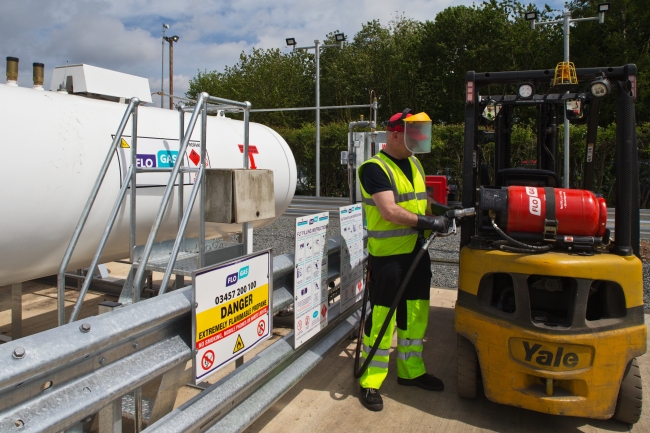3 minute read • published in partnership with Flogas
Insight: Quashing the myths of LPG
For businesses that operate off the national mains gas grid, ensuring a constant supply of energy is an everyday consideration, one that businesses on the gas grid, don’t ever need to think about. And no matter what the size or scale of the operation, whether that’s using energy for production and processes or simply heating and hot water, ensuring a constant supply becomes a business-critical priority, as any unwanted downtime can have a major impact on profitability. As experts in energy, the specialists at Flogas Britain have debunked some of these myths surrounding LPG to give business owners a clearer perspective.
It’s no surprise then that many businesses are reluctant to change energy type or supplier – preferring to play it safe and stick to what they know, to help keep operations running smoothly.
However, the downside to this approach is that businesses may be missing out on opportunities to not only change to a fuel that provides a constant and controllable supply, but also one that could reduce harmful emissions, increase operational efficiency and reduce energy costs.
Liquefied petroleum gas (LPG), a fuel that is gaining a reputation as the cleanest, most efficient off-grid fossil fuel – especially when compared to heavy fuel oil (HFO) – and one that is playing a major role in the UK’s transition towards a cleaner energy mix.
However, despite all the positivity surrounding this modern and versatile energy supply, many businesses are still hesitant to introduce LPG due to some common misconceptions.

LPG is gaining a reputation as the cleanest, most efficient off-grid fossil fuel and one that is playing a major role in the UK’s transition towards a cleaner energy mix / Picture: Flogas
Debunking the myths
1 – “LPG Systems are difficult to install”
A commonly misheld belief is that switching from oil to LPG can be a lengthy and laborious process. In fact, the opposite is true. From the initial customer enquiry to installation and even disposal of your existing oil tank, with the right supplier you can be confident of a turnkey solution, resulting in minimal downtime.
By working closely with customers, Flogas’ expert teams of in-house engineers analyse existing production schedules to ensure that installation is as swift and as stress-free as possible.
2 – “LPG tanks take up lots of space”
Many businesses are hesitant to install LPG tanks due to the misconception that they will take up large amounts of space. However, many companies are unaware that storage tanks can be located below ground – a particularly helpful option if space is at a premium. After an initial site survey, your gas supplier should be able to propose where best to locate your LPG tank.
From ground excavation, to installation of the tank, setting up of gas connections and an inspection hatch, each stage is managed by the supplier.
3 – “Monitoring LPG levels is a tricky process”
The idea remains that being able to monitor your LPG levels is a difficult process. But whether you have a tank located above or below ground, the process is extremely simple. LPG tanks can now be fitted with telemetry systems which are able to inform your supplier when a top-up is due, ensuring you’ll always have gas when you need it.
4 – “LPG isn’t sustainable”
Offering a significant reduction in NOx emissions compared to other conventional fuels, LPG is helping to provide cleaner air. This is especially relevant in the current climate.
As the UK government continues to introduce increasingly tight environmental legislation, such as its ‘Net Zero’ target, an objective that aims to bring UK emissions to as close to zero as possible – there’s only likely to be a continued focus on cleaner, greener types of energy.
It also boasts a lower carbon intensity to that of oil by around 2o% and contains almost no particulate matter (PM) and no sulphur.
For those looking at reducing their environmental impact even further, carbon offsetting initiatives are now also available. With Flogas for example, businesses can offset up to 100% of their carbon impact from using gas, by providing support to renewable environmental projects from around the world.
Overall, business owners can rest assured that LPG ticks the box when it comes to more sustainable energy.
5 – “LPG can only be used for heating”
Surprisingly, there is still a myth that LPG is a fuel that can only be used for heating. However, LPG is extremely versatile, and its uses include the likes of powering breweries and distilleries, cooking, fuelling vehicles or even producing hot water.
This means that LPG can span across a wide variety of markets, such as:
• Manufacturing
• Forklift trucks
• Quarrying
• Farming and agriculture
• Propane enrichment of biomethane
• Leisure and hospitality
• Caravanning
